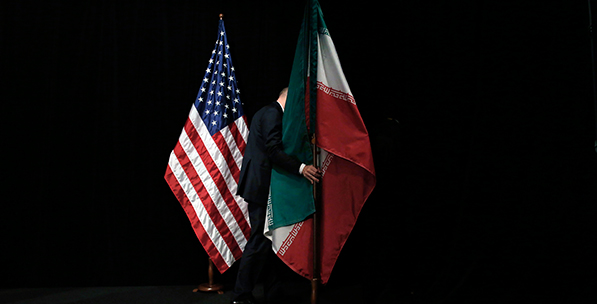
(Dis)advantages of the Iran Nuclear Deal for the US
Decision by the U.S. administration and Congress will have a variety of ramifications for politics in the Middle East and U.S. relations with its partners in the nuclear deal. Remember that actions of the U.S. administration will be judged with U.S. actions and inactions that have taken place in recent years in the Middle East.
Share
Since President Donald Trump's decision not to certify the compliance of Iran to the Joint Comprehensive Plan of Action (JCPOA), there has been ambiguity about the next step in regards to the Iranian nuclear deal. The ball is in the U.S. Congress's court right now, and in the next 50 plus days, Congress will try to make a decision about the fate of the agreement. The options are limited. Congress will either put sanctions, which may practically end the agreement and seem hard to do in a limited amount of time or just leave the deal as is until the next deadline for certification. Debates about imposing trigger points on the deal are a little more complicated.
This decision by the U.S. administration and Congress will have a variety of ramifications for politics in the Middle East and U.S. relations with its partners in the nuclear deal. Remember that actions of the U.S. administration will be judged with U.S. actions and inactions that have taken place in recent years in the Middle East. For instance, as mentioned by a few observers, there is the ghost of the path of the war against Iraq and the escalation of the crisis from the U.S. side reminded them the decision to go to war in Iraq. They emphasize the same distrust of the international agencies, such as the International Atomic Energy Agency (IAEA). The same form of unilateralism is easy to observe in U.S. foreign policy. There is more or less disregard for the decisions and positions of the other partners while making decisions.
This similarity also raises several difficult questions. First, such a similarity puts U.S. relations with its partners in Europe, in particular, in a difficult situation. The rift that took place between Germany and France with the U.S. was particularly significant before the Iraq War. After President Trump's statement, the members of the P+5 made a statement underlining their commitment to the agreement. They emphasized IAEA reports about Iranian compliance to the nuclear deal. So transatlantic relations will be at stake at this critical juncture. Of course, countries like Russia will also be ready to exploit such a rift between the U.S. and Europe. Considering the economic gains of European, Russian and Chinese companies, it will be hard to implement sanctions, even if they are passed by Congress.
Second, the regional ramification of this similarity is important to understand. Most countries in the region do not have any appetite for another lengthy, costly conflict along their borders, which can result in an export of insecurities, another refugee influx and instability in the region. However there are countries such as Saudi Arabia, and to a lesser extent Gulf countries, that see this as an opportunity to destroy their most formal rival Iran. And this policy can mobilize these countries with a more assertive agenda against Iran to be more pro-active. The U.S., at this point, must prevent incorrect signaling. Their action could be misinterpreted as a green light for regional escalation.
Third, it is important to understand and work on regarding other activities of Iran in the region. President Trump, in his speech, did not just talk about Iran's nuclear program, but he also underlined threats posed by Iran to the region, including Iranian proxies in countries such as Syria and Lebanon and the existence of ballistic missile program in Iran. For years now, what has bothered many countries in the region the most about Iran was its assertiveness and aggressiveness in these different conflict areas. Thus, the expectation of the U.S. administration is to find a way to curb the activity of Iran in the region in conjunction with regional actors.
It is important to understand the current state of relations, threats from the U.S. and the latest decision about the decertification, which will cause stress and tension in Iranian foreign policy making. So far, Iran has taken advantage of the agreement; however, internal dynamics in the country will be particularly important to understand Iran's position about decertification.
Any externalization of this domestic reaction could lead to escalation in the region that will be hard to control or manage. Thus, while making the decision about the JCPOA, U.S. foreign policy makers need to take into account the fallout from this agreement and the possible spoilers of peace in the region.
[Daily Sabah, October 27 2017]
Tags »
Related Articles






